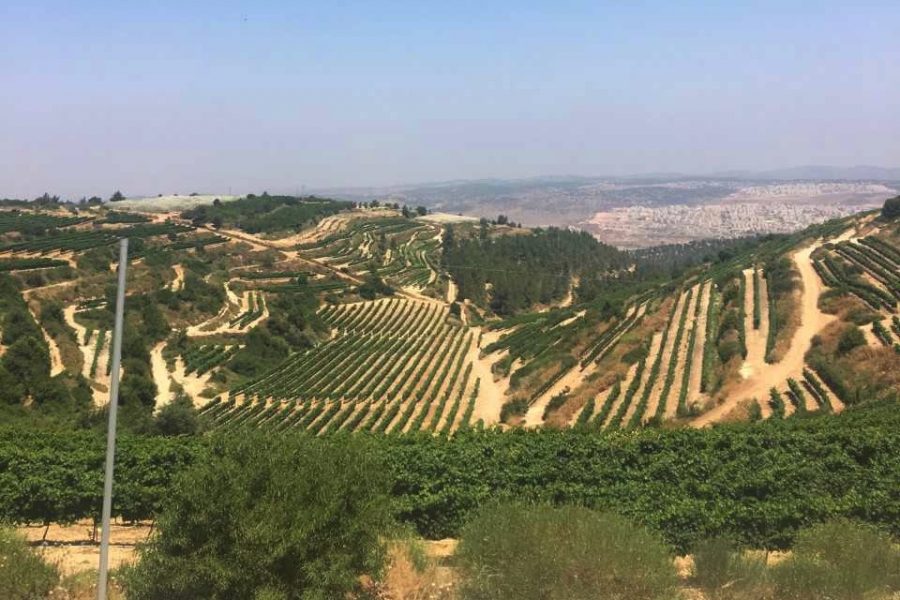Lotenschtein: Dispatches from Tel Aviv: Reviewing history and prospective peace in the West Bank
The West Bank is a territory famously fraught with conflict. What’s being done to build a more harmonious future?
The Gush Etzion area of the West Bank is seen on June 19.
June 25, 2019
In a place where Israelis and Palestinians live separated by lines drawn in the sand, there is one location in the West Bank where both parties come together.
Located in a humble community center in the Judean hills, an organization called Roots has dedicated to alleviating tensions between the Israeli and Palestinian communities since 2014. Roots has served as a safe place for education and peace for both narratives, and the organization literally planted its roots at a kibbutz called Shorashim, a small Jewish community in which life revolves around agriculture and the Torah.
I never had any expectations about what the West Bank would look like. Expectation, speculation, and assumption are schools of thought that enable ignorance and imaginative thinking. I traveled there with my Onward Israel program, knowing full well that my experience would have a stark difference from that of others.
RELATED: Lotenschtein: Dispatches from Tel Aviv: Beginning with generosity and chaos
At Roots, our group was introduced to one of the center’s rabbis and were fortunate enough talk to an Israeli and Palestinian. Both shared their stories of how they came to know the kibbutz and how they’ve faced rejection from their communities, family members, and friends for merely speaking to “the other side.”
But how did the contention of West Bank come to be? What caused this, to use a lighter term, sour pickle that’s caused hostility between two ethnicities? The Six Day War broke out in June of 1967. The Arab nations of Egypt, Jordan, and Syria declared war on Israel (nothing new there). Israel won the war, claiming territories such as the Gaza Strip, East Jerusalem, and the West Bank.
There’s just one looming reality left: There are still Palestinians and Israelis residing in the West Bank. Israel won’t accept the Palestinians as citizens and have built settlements in the region. Jordan, who had previously occupied the area, won’t accept the Palestinians as citizens and still has no desire in taking back their land. But Israel has also not annexed the West Bank in its entirety.
And so we have, dear reader, a bit of a problem.
That doesn’t mean all hope is lost. It also doesn’t mean that all Jews and Arabs are born hating one another. It is the acts of the extremists on either side that drive fear into the hearts of people who simply want to live without violence. Initiatives such as Roots have started blooming across the desert.
It is not uncommon for Israelis and Palestinians to send their condolences to each side after a terrorism incident or shooting of an innocent person. These actions warm my Iowa Nice heart, but I know this conflict in the West Bank will not settle anytime soon. People on both sides need to start educating their children about the conflict when they are young. If all you’ve known your entire life is one side’s story, the dissension will never end. We must do our best to educate ourselves without biases — which is nearly impossible to do — setting aside historic religious and ethnic differences, and in the practice of audacious optimism, coexist peacefully.



